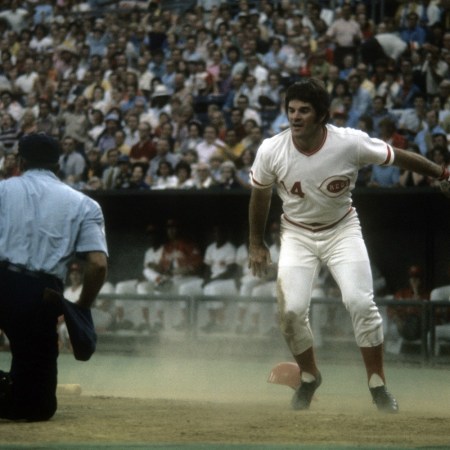If there’s a word to describe the current state of Major League Baseball, that word might well be “fiux.” The league is still recovering from the 2020 season, in which the effects of the pandemic were apparent both on and off the field. And next season looks to involve another series of changes, including the elimination of the shift and the addition of a pitch clock.
There are a number of reasons to be optimistic about the future of baseball in the U.S. — and that’s before factoring in when we might see some of the best players currently plying their trade overseas suiting up in the American or National League. And, heading into the off-season, some big questions linger about what 2023 will look like — not the least of which is where Aaron Judge will end up playing next season.
But for now, here’s a look at 10 of the numbers that help put the just-concluded Major League Baseball season into context. Some of them point to larger narratives the game is facing as well — but then again, baseball is a sport that lends itself to those especially well.
62: Aaron Judge’s home run total, which set a new record for the American League. With 131 RBI on the season, Judge also came ⅔ of the way to winning a Triple Crown.
5,215: the total number of home runs this season. According to the Associated Press’s Ronald Blum, that’s over 700 less than the 2021 season — and over 1,500 less than the 2019 season.
3,356: the number of pitches over 100 miles per hour this season. That’s over three times what it was in 2019, and almost double last season’s figure.
11.68%: how many of those over-100 mph pitches were thrown by Jhoan Duran (392 total).
.316: Luis Arráez’s batting average, which led the A.L. This was, as it turns out, the lowest highest average in the A.L. since 1968, when Carl Yastrzemski’s .301 led the league.
1,135: the gap between strikeouts and hits for the current season, which is less than half of what it was in 2021.
64,556,678: the total number of fans in attendance across all games this season. As Front Office Sports notes, that’s an average of 26,843 per game — almost 8,000 more than the comparable figure from 2021.
22,690: the average increase in fans per game for the Toronto Blue Jays — the team that had the greatest year-over-year increase — from 2021 to 2022.
2: the number of teams that drew fewer fans in 2022 than they did in 2021. (For the record: Cincinnati and Texas.)
8: how many of the eight teams with the highest attendance made the postseason this year.
Now, let’s see what the playoffs have in store.
Whether you’re looking to get into shape, or just get out of a funk, The Charge has got you covered. Sign up for our new wellness newsletter today.
























